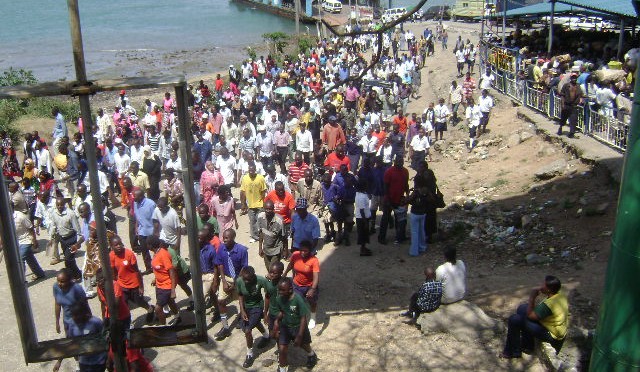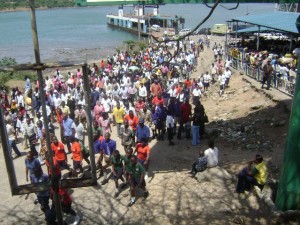This week we were reminded that there’s been no IPO at the Nairobi Stock Exchange (NSE) since 2008 (Co-Op Bank) and the events in the last few days were the fulfillment of initiatives that companies like Britak and Transcentury had initiated earlier in the year.
Britak: The British American Investments Company Kenya kicked off their IPO this week. The group had Kshs 9 billion in income, and pre-tax profit of Kshs 2.8 billion in 2010. With group assets of Kshs 25 billion, it is second only to the ICEA at 27 billion.
They are being sold at Kshs 9 with an allocation criteria of 30% East Africa retail, 30% foreign, 37% institutions, 3% employees, agents, and individual policy holders and can be obtained at British American branches, Equity bank , Standard Chartered (and partner Postbank), NIC, CBA banks and stockbrokers.
The minimum for retail investors is 2,000 shares (Kshs 18,000 while for institutions it’s 10,000 shares (Kshs 90,000 or ~$1,000). The IPO is budgeted to cost Kshs 320m ($3.5M) with estimated payments to transaction advisor 24M, sponsoring broker 6M, legal costs 9M, selling commission 87M, CMA 9M, NSE 1.5M, PR 67M, and advertising 90M.
Of the Kshs 5.9 billion to be raised, 1 billion will be for regional expansion (Tanzania, South Sudan, Rwanda), 1.2 billion will be for Kenyan operations (set up a frontier investment fund, new branches), 2.5 billion for the housing & mortgage sector aimed at affordable housing models, and 750 million will go to pay off a loan at CBA bank that was used to purchase shares in Equity Bank (Britak own 11% of equity and 16% of housing finance banks).
The Britak IPO runs from 12 July to 5 August and they have also reached out to bloggers, with forums and their own blog posts such as this tale of their CEO’s initial investment.
However, there are some concerns that with their 45-year history and strong brand name (-pay Kshs 18 million a year to British American), this is a retail magnet IPO and the sale of 650 million shares (30% of the company) is likely to be over-subscribed, and the dividend paid (Kshs 200m in 2010) is likely to be safaricom-ish (small)
The company has also called for the Government to extend current tax incentive for newly listed operating companies to also include holding companies (like Britak)
Transcentury: The investment group which has had a spectacular climb and string of investments, most notably with East African Cables listed their shares at the NSE on July 14.
Their shares had been trading at an OTC exchange and were listed at the NSE at Kshs 50, which worked out to a P/E ratio of 38
The Group also has a Mauritius convertible bond issued to finance the restructuring of Rift Valley Railways and investment in geothermal and other energy projects, but which also has the potential of diluting investors shareholding by over 1/3. (150 million shares available to bond holders over the next 5 years prices between 40 and 50)
Still, Transcentury has been am inspiration to other investment groups, albeit not as well connected to initiate projects with more risk such as energy real estate, and offshore. The introduction is budgeted at Kshs 20 million (220,000 – CMA 5M, NSE 1M, advisor 8M, stockbroker 4M) and the PDF prospectus is ‘protected’ so you can’t copy sections of it.
Family Bank: Their long dalliance with the NSE is about to be fulfilled as their shareholders will next month approve a listing at the exchange. They will also vote on an ESOP for managers and 1 % transfer of shares of the company to the new CEO. It has since emerged that he is purchasing the shares at a discount as part of his employment package.
Stima SACCO: Away from NSE is Stima SACCO that is in the process of raising funds of about Kshs 500 million ($6 million) . They have advertised in newspapers (even on TV), which may land them in trouble with the CMA, for selling shares to the public without adequate information. At Kshs 100 per share, individuals can buy 200 shares at a minimum (Kshs 20,000).
Kenya Airways: Nothing yet from the airline who were expected to approach shareholders for new funds. The government has allocated funds to invest and defend their 26% stake an the airline which has since signed a deal for new Embraer aircraft to grow their African footprint.
Bank of Kigali: The Bank of Kigali is aiming to raise $62 million from new investors in an IPO that runs from 30 June to 29 July. The Bank control 25-30% of the banking sector in Rwanda; it had profit of 8.6 billion francs ($14 million) in 2010 on assets of 197 billion francs ($324 million) – equivalent to a smaller mid-size Kenyan bank
300 million shares are on offer, and the minimum is 200 shares per person at 125 francs per share ($0.075 or Kshs 18.65). They are open to cross-border investors and the allotment will be to 27% retail East Africans, 2.4% to employees & directors, 15% – East African institutions, 15% to Rwanda institutions and 40% to international investors.
The Rwanda government owns 66% of the bank, and the other 1/3 are owned by the social security fund of Rwanda. 16 billion francs ($27 million) will go to the Government for reduction of its shareholding and 20.8 billion francs ($34 million) will go to the bank to reduce its assets & liabilities maturity gap and grow its loan book and operations (from 33 to 60 branches). This will result in new shareholders owning 45% of the bank, the government 30% and the social security fund with 25%
Other: The IPO prospectus lists
– lawyers acting for the bank, number of cases they have and prospects of loan recoveries
– lawsuits filed against the bank by name (former employees, debtors opposing auction)
– list of subcontractors and related partners such as visa card providers, SMS partners, providers of credit reference and lines of credit etc.
list of properties owned and rented by the bank and rent amounts. Also Rwanda depreciate building over 5 years, after each revaluation
Risks & Exposure – one of the operational risks is scarcity of qualified personnel in Rwanda
– commerce restaurants & hotels account for 46% of the bank portfolio while construction was 29%. Also 11% of loans were to a single group and records of large are available for review to persons who sign non-disclosure agreements
– Kenya is the country’s largest trading partner: Rwanda exports 33% to Kenya and imports 16% back.
Staff: – All staff are entitled to bonus and in 2010 this totaled 8% of profit, which that was shared by 441 staff (out of 454), and the average award was $3,200.
– The bank also runs an in-house dispensary and provides full medical cover to staff and 4 dependents
– The oldest director was born in 1960, the youngest in 1977. At senior management, the managing director is the oldest employee at 54, while the head of finance is the youngest at 31.
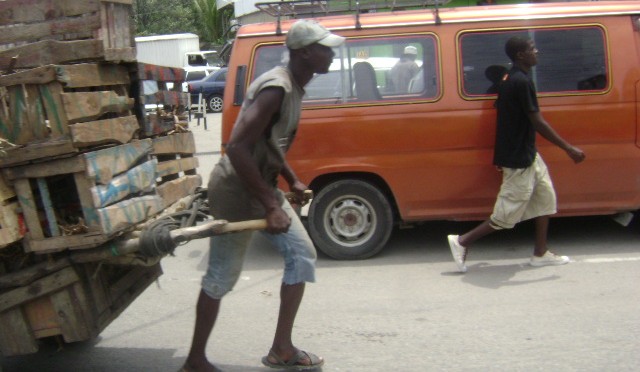
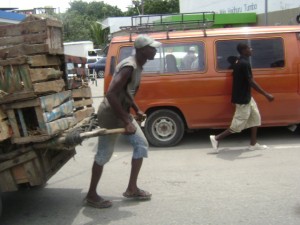
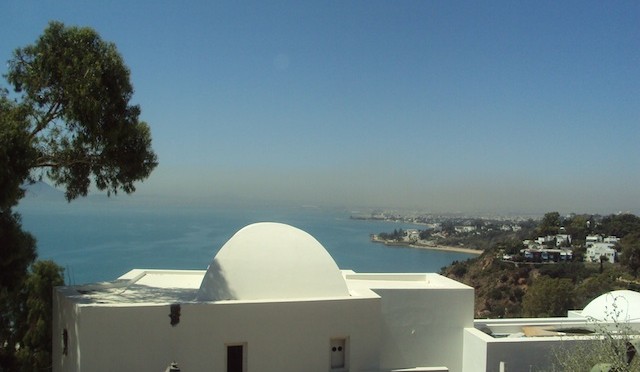
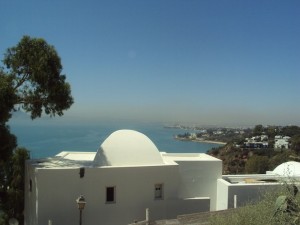 Mediterannean from the hill atop Sidi Busaid
Mediterannean from the hill atop Sidi Busaid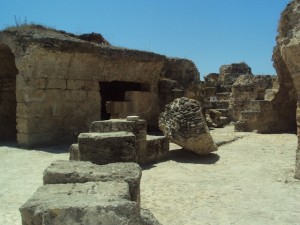 Ancient City of Carthage
Ancient City of Carthage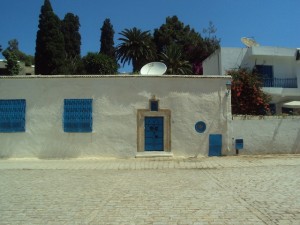 Exclusive Sidi Busaid suburb where by-laws require all buildings to be white with blue trimming
Exclusive Sidi Busaid suburb where by-laws require all buildings to be white with blue trimming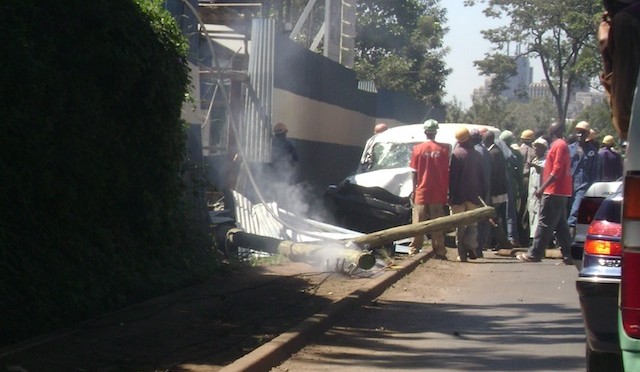
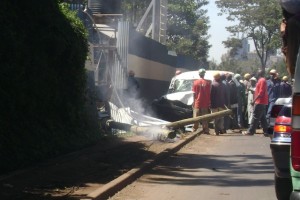 Insurance Opportunities
Insurance Opportunities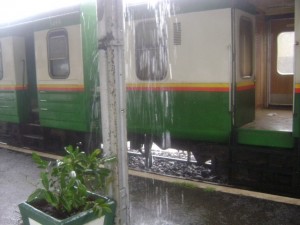 RVR Coach
RVR Coach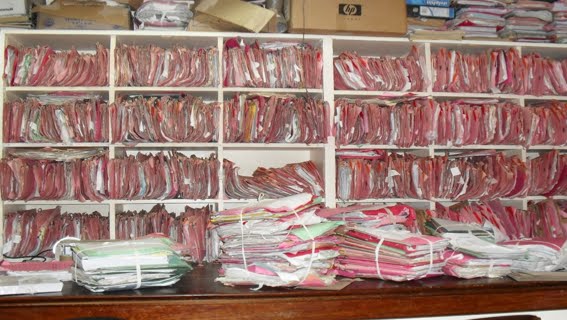
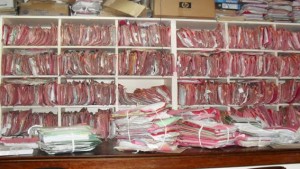 Typical government records registry
Typical government records registry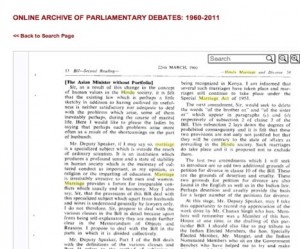 Digital searchable Kenya Hansard on Google books in original font
Digital searchable Kenya Hansard on Google books in original font